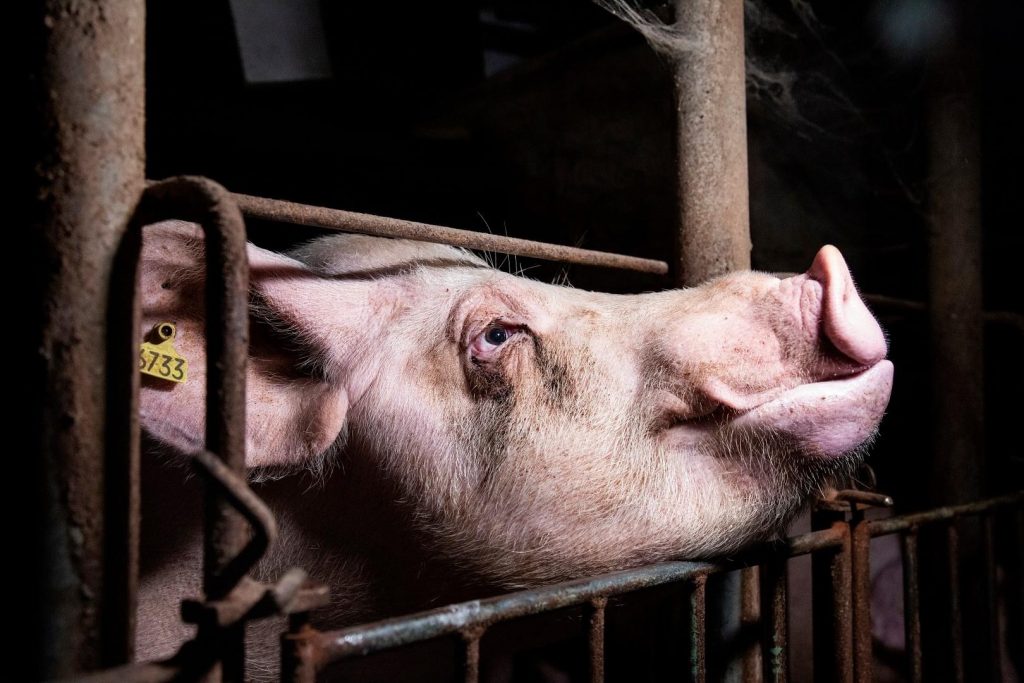Are Pig-To-Human Kidney Transplants Ethical?
A kidney grown in a genetically altered pig and successfully transplanted to a human patient raises questions about animal ethics.

By Tiarra Drisker ‘25
A kidney grown in a genetically altered pig functioned normally when surgically attached to a brain dead human patient in September. The procedure, performed at New York University Langone Health in New York City, could be used as a technique to secure more organs for organ transplants. This breakthrough in xenotransplantation technology is great news for people in need of transplants, but poses new questions about animal rights and human costs.
As life saving as this breakthrough is, some animal ethicists are alarmed. Clare Palmer, a professor in the Department of Philosophy who studies animal ethics, explains why.
“Some people consider the technology unethical because of the risk of pig retroviruses passing from pigs to people, something to which we’re highly sensitized at present,” Palmer said. “Since this technology also very likely involves the modification of pigs to include human genetic material, some people regard it as unnatural, and thus unethical.”
More than 100,000 Americans are currently on the transplant waiting list, and over 90,000 of those individuals need a kidney. Each day, 17 people on the list die. People need these organs, but some argue that pigs should not have to suffer for the health of humans. According to Palmer, ethicists hold three general views on animal ethics. One view, a utilitarian outlook, is that people should take into account and attempt to minimize suffering of all the beings that are able to undergo suffering, regardless of their species.
“A utilitarian would need to know more about the possible quality of life of the pigs concerned,” Palmer explained. “Would it be possible to give the pigs happy lives, enough freedom to perform natural behaviors, and painless deaths? Good lives may be difficult to achieve because the donor pigs would need to be kept in sterile conditions, probably restricting the possibility of social interaction with other pigs. But if the animals could be given good lives, and be killed painlessly, while humans who would otherwise die flourish due to their organ transplant, then an ethical cost-benefit analysis may well come out in favor of organ transplants from pigs.”
Another view is based on the rights of the animals. This view holds that conscious or “sentient” animals have basic rights not to be killed, not to be seriously harmed, and not to be used solely for the purpose of benefiting others, even when those benefits would be significant.
“From a rights perspective, this treats pigs merely as means to our ends, almost as a kind of mechanism, whose entire life is created and disposed of for human use,” Palmer shared.
One other view, the “animal welfarist” view, holds that animal welfare matters, and that it would be unethical to cause animals suffering for trivial reasons. However, for more serious reasons, such as animal experimentation or eating meat, human interests trump animal welfare.
“In terms of weighing costs and benefits, the much smaller numbers of pigs, and the life-saving purpose of organ transplantation, seem much easier to justify ethically than keeping pigs in intensive farms for pork,” Palmer said. “Indeed, for the animal welfarist who thinks human interests trump animal interests, growing kidneys in pigs, if it could be done safely, would be a no-brainer.”
With this new development in xenotransplantation technology, Americans and the world alike look to the future and wonder whether the future of accessible organ transplants lies within the bodies of pigs.
“The use of animals to provide human organs does seem to raise this question very acutely: If an animal is sufficiently similar to a human that we can take its organs and transplant them into our own bodies, doesn’t that very closeness raise questions about whether we should do so?” Palmer said.
